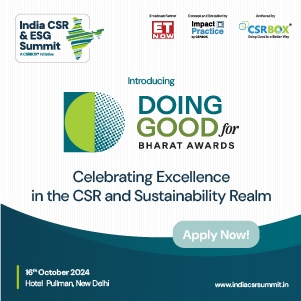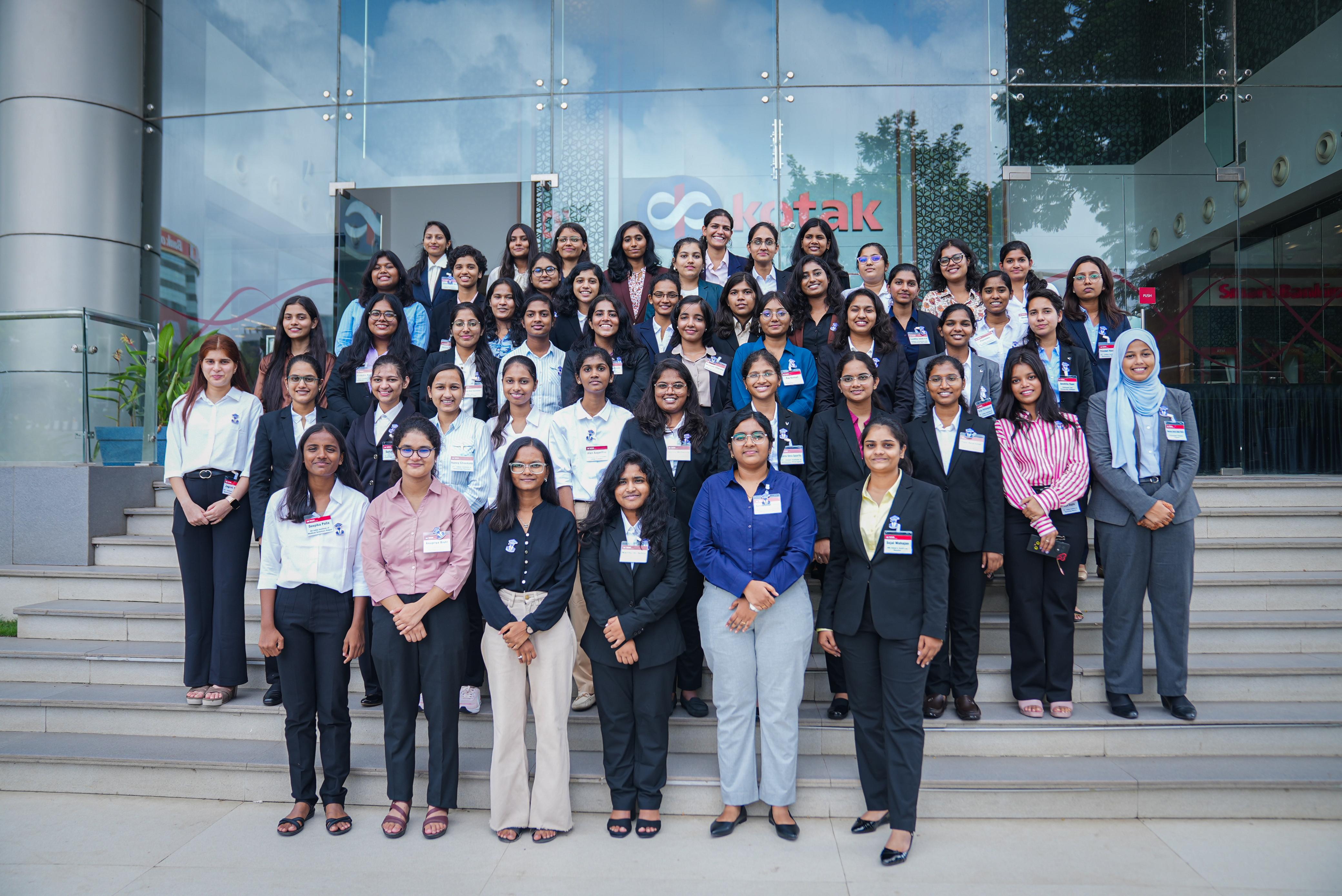Subscribe our Weekly Newsletter
RFP - Continuous Monitoring, Evaluation and Learning (MEL) for the project Boosting Female Labor Force Participation

Organization: UNDP
Apply By: 26 Aug 2024
RFP - Continuous Monitoring, Evaluation and Learning (MEL) for the project Boosting Female Labor Force Participation through Strengthened Urban Care Ecosystem: Focus on Childcare
About the Organization
As the lead United Nations agency on international development, UNDP works in 170 countries and territories to eradicate poverty and reduce inequality. We help countries develop policies, leadership skills, partnerships and institutional capabilities to achieve the Sustainable Development Goals. Our work is centred around six core development areas, known as our signature solutions: poverty and inequality, governance, resilience, environment, energy and gender equality.
UNDP’s mandate is to end poverty, build democratic governance, rule of law, and inclusive institutions. We advocate for change, and connect countries to knowledge, experience and resources to help people build a better life.
About the Proposal
UNDP has been working in India since 1951 in almost all areas of human development. Together with the Government of India and development partners, we have worked towards eradicating poverty, reducing inequalities, strengthening local governance, enhancing community resilience, protecting the environment, supporting policy initiatives and institutional reforms, and accelerating sustainable development for all.
With projects and programmes in every state and union territory in India, UNDP works with national and subnational government, and diverse development actors to deliver people-centric results, particularly for the most vulnerable and marginalized communities. As the integrator for collective action on the Sustainable Development Goals (SDGs) within the UN system, we are committed to supporting the Government of India’s national development vision and priorities and accelerating the achievement of the SDGs for the people and the planet.
Our new Country Programme (2023-2027) builds on our prior work and aims to provide an integrated approach to development solutions in three strategic portfolios:
- Strong, accountable, and evidence-led institutions for accelerated achievement of the SDGs.
- Enhanced economic opportunities and social protection to reduce inequality, with a focus on the marginalized.
- Climate-smart solutions, sustainable ecosystems, and resilient development for reduced vulnerability.
UNDP’s Country Programme Document (2023-2027) intended outcome 2 states that “By 2027, people will benefit from and contribute to sustainable and inclusive growth through higher productivity, competitiveness and diversification in economic activities that create decent work, livelihoods, and income particularly for youth and women”.
In the above context, UNDP is embarking on a three-year project “Boosting Female Labour Force Participation through Strengthened Urban Childcare”.
Project Background
The care economy entails a diversified range of productive work with both paid and unpaid work activities for providing direct and indirect care for children, the elderly, disabled and ill, as well as for prime age working adults. A substantial amount of this care work is performed on an unpaid basis in the domestic sphere.
Across the world, women perform three-quarters of unpaid care work, or 76.2 per cent of the total hours provided. Even with many gains in education, India’s Female Labour Force Participation Rate (FLFPR) is one of the lowest in the world, ranking 165 among the 176 countries, and it has been falling in the recent decades. The ability of women to participate in the labour force is dictated by various economic and social factors, unpaid care work being one of the primary ones. Amongst care related chores, childcare arguably takes a large part of women’s time. Additionally, gendered work division and norms fuel the perceptions of childcare being a woman's job. The impact of the burden of unpaid care work, specifically childcare, on a women’s ability to actively participate in the paid workforce holds particular significance in India. A study conducted by the National Sample Survey Organization (NSSO) in India found that in urban areas, 44% of women who were not in the labour force cited domestic responsibilities, including childcare, as the reason for their limited or non-participation in economic activities.
The care industry in India has grown significantly in recent years. However, these services, mainly operated by private companies, primarily in urban areas, are typically used by middle-income and higher-income households. While there are a few public programmes and policies which support the provision of childcare / creches, these remain concentrated in rural areas, leaving little to no attention on India’s urban childcare needs. This is especially critical given the vast informal economy that exists in the urban sector, of which poor urban women with no social or economic protection make up a majority. Apart from the lack of government-run childcare services, some of the other main challenges related to childcare provision in urban areas include little or no public financial provision to support or subsidize private childcare services, trust issues of parents concerning small-scale privately run childcare centers, lack of trained childcare professionals, high cost of providing quality care, etc.
UNDP is embarking on a 3-year project ‘Boosting Female Labour Force Participation through Strengthened Urban Childcare’ which will be implemented in collaboration with the DAY-NULM, Ministry of Housing and Urban Affairs. In this context, the Nurturing Neighborhoods Challenge (NNC) piloted under the Smart Cities Mission, Ministry of Housing and Urban Affairs (MoHUA) with support from the Bernard van Leer Foundation and WRI India in 10 cities, has been working to make cities friendly for young children and their caregivers. Pilot initiatives provide some insights and learnings for developing scalable and replicable models for improving cities for infants, toddlers, and their caregivers.
Through this project, UNDP India aims to find an effective way of strengthening the urban care system including engaging with men and boys to break the stereotypical gendered division of unpaid care work. This is to reduce the unpaid care work burden and time poverty faced by women. While the care ecosystem encompasses different forms of unpaid care, keeping in view the criticality of childcare, UNDP plans to start with a specific focus on provisioning of childcare services targeting urban poor households and establish the critical need for an increased investment in care services in general from the government, private sector, and development partners to enable women to join and/or re-enter the paid workforce.
The overall goal of the project is to contribute to “Increased opportunities for urban poor women to participate in paid workforce, driven by the availability of accessible and affordable quality childcare services in their community/vicinity of workplaces.”
This would be done through three main strategies:
- Assessment of the current care service landscape with focus on childcare in India and various models targeting urban lower income households including feasibility and scale potential, synthesis of the existing research and key partners and enablers in India. To achieve this, a landscape assessment including feasibility and scalability potential analysis of existing services models for urban lower income households will be undertaken. Based on the results of the landscaping study, models targeting urban lower income households will be identified for piloting along with potential partners and enablers. Along with this, a comprehensive plan including impact measurement framework and feasibility analysis of financing options including blended instruments will also be undertaken. A challenge call to identify and accelerate innovative care service provisioning solutions including childcare targeting urban poor will also be designed and launched.
- Increased availability and uptake of accessible, affordable, and quality childcare services, alleviating the unpaid care burden on urban poor women and unlocking their economic potential. To achieve this, adapted and customized training content will be developed and used to train childcare workers and carepreneurs along with piloting of childcare service models in partnership with existing and new service providers.
- Enhanced awareness and capacity of public and private sector key stakeholders and enablers to increase investment for care services specifically targeting urban lower income households. A Care Coalition will be established by UNDP which will be an advisory group of key sector experts, Think Tanks, research organizations, implementing partners and other national level players working on women economic empowerment and care economy. This will Increase knowledge and awareness among policymakers, practitioners, and stakeholders on the importance of investing in childcare provision as a key driver of gender equality, economic growth, and social development in India. This will enable the sharing of documented best practices, lessons learnt, and policy briefs; policy dialogues, roundtable convenings and capacity building workshops at state and national level will be conducted; and convergence with and leveraging of investments under public funded initiatives such as NULM, Smart Cities Mission, National Creche Scheme (Palna), etc. will be prioritized. Awareness and nudge campaigns aimed at changing perception and promoting shared responsibilities related to unpaid care work will also be undertaken.
Childcare Service Pilots
It is planned to roll out the identified and selected childcare pilots in partnership with private and public institutions at 10-15 locations in 5-6 cities (both metro and non-metro locations). These will be piloted in low-income pockets in urban areas to enable women’s enhanced participation in paid work and income generating economic activities. The indicative geographies where the project plans to roll out the childcare centers includes Delhi NCR, Haryana, Bangalore, Aurangabad, Pune, Hyderabad, Hubli-Dharwad, Ranchi, Jabalpur and other locations with similar socio-economic contexts may also be considered.
The project pilots will fall under four broad categories (as mentioned below) and are expected to cater to approx. 1000-1500 households in total over a period of 24 months.
- Community-based childcare models (5-6): These will include piloting of existing childcare models based on the experience and learning of sector leaders (9 pilots).
- Women-run childcare service enterprises (Carepreneurs – 2-3): In addition to pilots directly run by existing service providers, women-run community based childcare service models or carepreneur models (2) will be piloted under the overall guidance and mentoring of existing childcare providers. Typically, this will be done by engaging with urban SHGs/ community-based organizations.
- Workplace model (3-4): Under this, UNDP plans to establish partnerships with local industrial estates/cluster level industry associations and chambers to set-up childcare centres in an industrial area which caters to employees of industries in the vicinity/members of the industry association partnered with.
- Innovative childcare service provisioning solutions (1-2): A Challenge Call for Innovative Childcare Service Provisioning Solutions will be designed and launched through which up to 2 feasible models are planned to be supported for piloting.
Through monitoring of these pilots, and with insights from the landscape study as well as the Care Coalition’s deliberations, UNDP aims to answer a few critical learning questions:
Indicative Learning Questions
- Role of family in providing childcare and barriers to accessing childcare services
- What are the socio-cultural norms and barriers (including trust, social stigma, parents' ability, and willingness to pay) that prevent households from using care services, and what factors/drivers can overcome these barriers?
- How does the provision of institutional childcare services impact intra-household gender dynamics (for instance, could having independent income and better work opportunities through access to childcare services improve mothers' bargaining positions in the household)?
- Does local context (for example, education/skill status of mother) play a role in uptake of the childcare services and reaping benefits from provision of childcare?
- What are the strengths and weaknesses of each pilot childcare business model and to what extent they cater to the needs and preferences of the lower income households in urban areas?
- What are the main cost drivers and other costs associated with implementation & overall operation of childcare service models in lower income urban areas? How does it vary across different models (for instance: in communities, in metro cities, non-metro cities, in industry areas etc.)
- What are the different revenue models including user fees which are working across pilots?
- To what extent do the pilot childcare facilities successfully leverage cash/in-kind support from public and private partners, demonstrating a sustainable model for expansion?
- Impact of childcare provision on women’s agency and income
- Does availability of childcare services and shared childcare responsibilities within household have a positive impact on women’s labor force participation, time utilization and overall well-being?
- Does availability and usage of institutional childcare model lead to increase in maternal incomes, women’s agency and switching to more productive jobs?
- What is the extent of observed changes in behavior, attitude, and perception (especially men) towards childcare responsibilities through the project’s interventions targeting social norms that stereotype childcare as solely a women's responsibility?
- What is the impact of availability of childcare services on the leisure time for mothers, reduced burden on elder siblings and grandparents resulting increase in time for paid work and study time, overall improvement in their mental health etc.?
- What is the level of satisfaction among parents using childcare services in pilot locations, particularly regarding the quality of services and the well-being and learning outcomes of their children?
- What is the impact of childcare provision on early childhood development and overall wellbeing, particularly healthcare, nutrition, cognitive development, and education outcomes for children aged 0-6 years?
- Does availability of quality childcare services near work or home influence parents’ perception of accessing childcare services and their willingness to pay?
- Does the standardized training content developed by the project effectively enhance the skills and knowledge of potential carepreneurs and childcare workers?
- Does the project increase knowledge and awareness among policymakers, practitioners, and stakeholders on the importance of investing in childcare provision for gender equality, economic growth, and social development in India?
- How many and what kind of stakeholders express their interest and willingness to allocate increased investment in creating affordable and accessible childcare infrastructure for urban poor communities?
- Assessing Childcare service models for urban lower income households
- Evaluating quality of care services and its impact on early childhood development
- Change in awareness, skills, and investment willingness vis-à-vis childcare
Specific Objectives
UNDP is seeking the services of an experienced service provider to collaborate with the UNDP project team and partners in establishing a robust Monitoring, Learning and Evaluation (MLE) system including continuous M & E and documentation of Learnings on a periodic basis for the abovementioned project. The primary objective of the assignment is to effectively monitor the childcare pilots including baseline, concurrent monitoring and endline evaluations, synthesize data and knowledge for regular progress updates, and at the end provide a comprehensive report with pros and cons of all pilots and a blueprint of the models that are most likely to succeed.
How to Apply
Deadline: 26-Aug-24 @ 08:00 AM (New York time)
This specific tender is managed via the new supplier portal system of UNDP Quantum. If you are interested in submitting a bid for this tender, you must subscribe following the instructions in the user guide. If you have not registered a profile with this system, you can do so by following the link for Supplier Registration.
If you already have a supplier profile, please login to the Supplier Portal, then search for the negotiation using the reference number UNDP-IND-00386,1, following the instructions in the user guide.
For more information please check the Link
Latest Online Store
Latest Grants
Latest News
© Renalysis Consultants Pvt Ltd

























